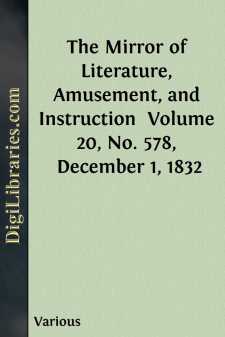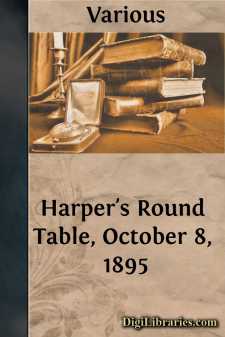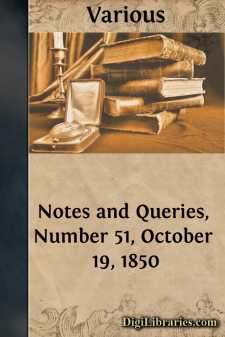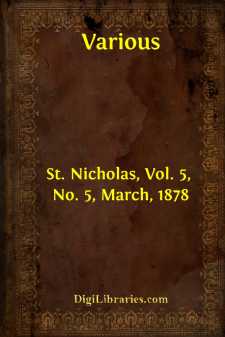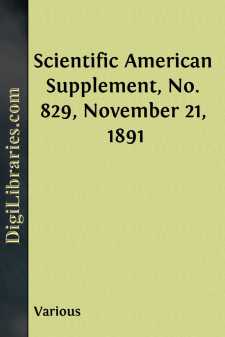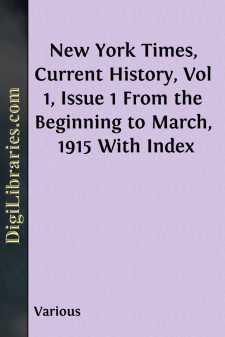Categories
- Antiques & Collectibles 13
- Architecture 36
- Art 48
- Bibles 22
- Biography & Autobiography 813
- Body, Mind & Spirit 142
- Business & Economics 28
- Children's Books 17
- Children's Fiction 14
- Computers 4
- Cooking 94
- Crafts & Hobbies 4
- Drama 346
- Education 46
- Family & Relationships 57
- Fiction 11829
- Games 19
- Gardening 17
- Health & Fitness 34
- History 1377
- House & Home 1
- Humor 147
- Juvenile Fiction 1873
- Juvenile Nonfiction 202
- Language Arts & Disciplines 88
- Law 16
- Literary Collections 686
- Literary Criticism 179
- Mathematics 13
- Medical 41
- Music 40
- Nature 179
- Non-Classifiable 1768
- Performing Arts 7
- Periodicals 1453
- Philosophy 64
- Photography 2
- Poetry 896
- Political Science 203
- Psychology 42
- Reference 154
- Religion 513
- Science 126
- Self-Help 84
- Social Science 81
- Sports & Recreation 34
- Study Aids 3
- Technology & Engineering 59
- Transportation 23
- Travel 463
- True Crime 29
Sort by:
by:
Various
TANFIELD ARCH, DURHAM. Tanfield is a considerable village, situated seven miles from Gateshead, in the county of Durham, and eight miles in a south-west direction from Newcastle-on-Tyne. The above arch is about a mile from the village, and crosses a deep dell, called Causey Burne, down which an insignificant streamlet finds its sinuous course. The site possesses some picturesque beauty, though its...
more...
by:
Various
The Happy Thought, as will be remembered by those who have read "The Longmeadow Toll-Gate," was a new departure in bicycle construction. Although provided with pedals that could be used in an emergency, its real motive-power was derived from naphtha applied through a pair of cylinders built upon a modification of the hot-air principle, and working directly upon the rear wheel. The oil was...
more...
by:
Various
NOTES. ROBERD THE ROBBER. In the Vision of Piers Ploughman are two remarkable passages in which mention is made of "Roberd the robber," and of "Roberdes knaves." "Roberd the robbere, On Reddite loked, And for ther was noght wherof He wepte swithe soore." Wright's ed., vol. i. p. 105. "In glotonye, God woot, Go thei to bedde, And risen with ribaudie, The Roberdes...
more...
by:
Various
ZOOLOGICAL GARDENS, REGENTS'S PARK.Emu EnclosurePelican EnclosureAviary for Small BirdsOur strolls to this scene of intellectual amusement, (or "the gardens with a long name," as Lord Mulgrave's new heroine naively calls them,) are neither few nor far between. The acquaintance is of some standing, since The Mirror was the first journal that contained any pictorial representation of...
more...
by:
Various
AN ENCYCLOPÆDIA OF VENTILATION. "The House [of Commons] met to-day [27th April] after the Easter holidays—and honourable members, on entering, seemed highly to appreciate the unusual luxury of a little fresh air."—The Times, 28th April. The failure of some late attempts to ventilate public buildings invites me to set forth an Encyclopædia of ventilation—at a cheap rate, and in a...
more...
by:
Various
HANSA, THE LITTLE LAPP MAIDEN.BY KATHARINE LEE. Once upon a time, in a very small village on the borders of one of the great pine forests of Norway, there lived a wood-cutter, named Peder Olsen. He had built himself a little log-house, in which he dwelt with his twin boys, Olaf and Erik, and their little sister Olga. Merry, happy children were these three, full of life and health, and always ready for...
more...
by:
Various
he battle of Chancellorsville marked the zenith of Confederate good fortune. Immediately afterwards, in June, 1863, Lee led the victorious Army of Northern Virginia north into Pennsylvania. The South was now the invader, not the invaded, and its heart beat proudly with hopes of success; but these hopes went down in bloody wreck on July 4th, when word was sent to the world that the high valor of...
more...
by:
Various
Science needed two thousand years to disentangle the earth's orbital movement from the revolutions of the other planets, and the incomparably more arduous problem of distinguishing the solar share in the confused multitude of stellar displacements first presented itself as possibly tractable a little more than a century ago. In the lack for it as yet of a definite solution there is, then, no...
more...
by:
Various
"Common Sense About the War" By George Bernard Shaw. "Let a European war break out—the war, perhaps, between the Triple Alliance and the Triple Entente, which so many journalists and politicians in England and Germany contemplate with criminal levity. If the combatants prove to be equally balanced, it may, after the first battles, smoulder on for thirty years. What will be the population...
more...
by:
Various
NOTES. OLD SONGS. I heard, "in other days," a father singing a comic old song to one of his children, who was sitting on his knee. This was in Yorkshire: and yet it could hardly be a Yorkshire song, as the scene was laid in another county. It commenced with— "Randle O'Shay has sold his mare For nineteen groats at Warrin'ton fair," and goes on to show how the simpleton was...
more...


